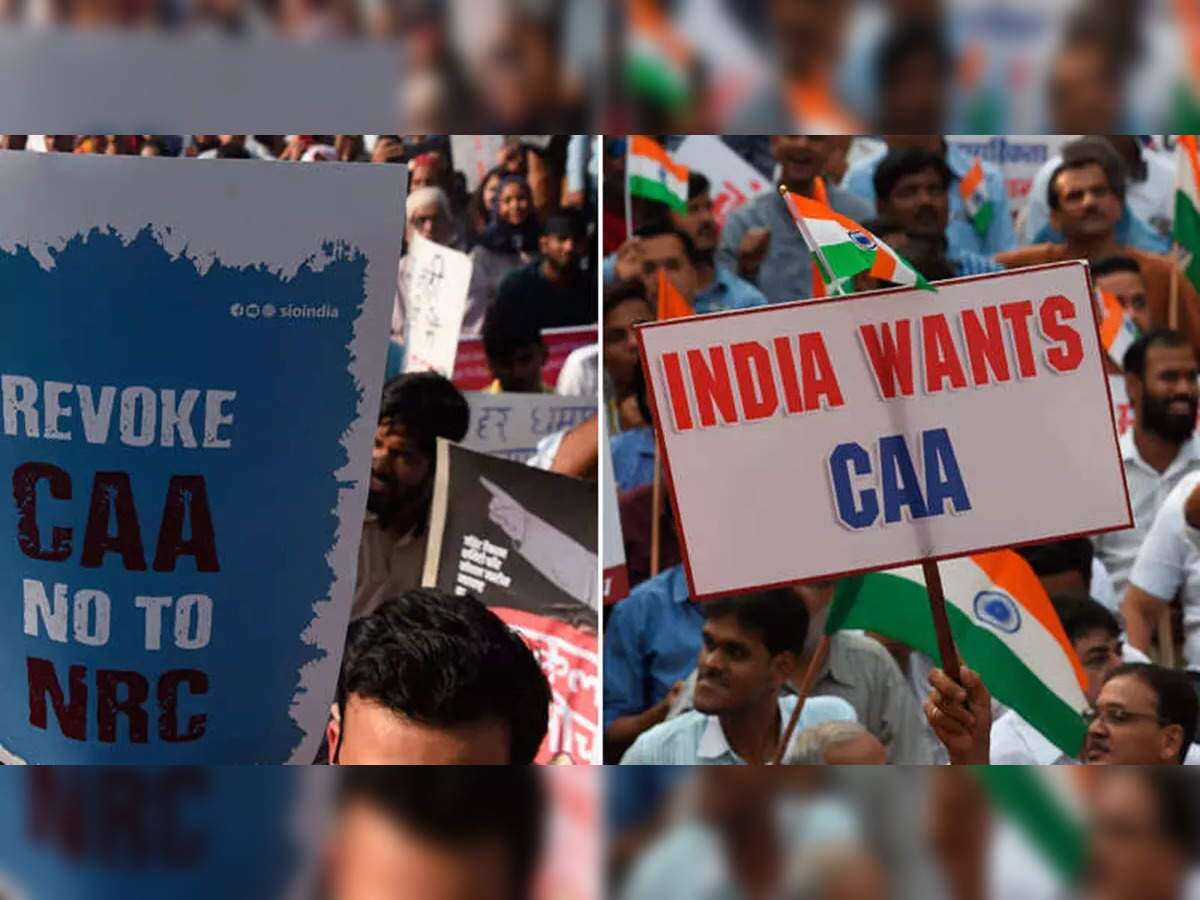The recent refugee protest following Arvind Kejriwal’s remarks on the Citizenship Amendment Act (CAA) has ignited controversy and raised questions about political motives and the implementation of the contentious law. Kejriwal’s response and accusations against the BJP have further fueled the debate surrounding the CAA and its implications for India’s socio-political landscape.
Refugee Protest and Kejriwal’s Reaction
The recent protest by refugees against Arvind Kejriwal’s remarks on the Citizenship Amendment Act (CAA) has sparked controversy and raised questions about the intersection of politics and citizenship issues in India. Kejriwal’s condemnation of the protest and his accusations against the Bharatiya Janata Party (BJP) have further intensified the debate.
The protest, led by refugees from Pakistan, Afghanistan, and Bangladesh, was prompted by Kejriwal’s comments on the CAA. Kejriwal’s statement, in which he suggested that refugees should be jailed for illegal entry into India, drew sharp criticism from the refugee community. The protest, characterized by breached barricades and demands for an apology from Kejriwal, reflects the deep-seated anxieties and grievances of refugees living in India.
Kejriwal’s reaction to the protest has added fuel to the fire. Accusing the BJP of exploiting refugees for political gain, Kejriwal warned of the potential consequences of the CAA implementation. His remarks highlight the polarized political landscape surrounding the CAA, with the ruling BJP advocating for the law’s implementation and opposition parties raising concerns about its implications for India’s secular fabric and refugee communities.
Political Dynamics and CAA Implications
Kejriwal’s condemnation of the refugee protest underscores the complex political dynamics surrounding the CAA and its implementation. The CAA, which offers expedited citizenship to persecuted minorities from Pakistan, Afghanistan, and Bangladesh, has been a contentious issue since its introduction. Critics argue that the law discriminates against Muslims and undermines India’s secular ethos, while supporters maintain that it provides refuge to persecuted religious minorities.
Kejriwal’s accusation against the BJP reflects the broader debate over the BJP’s handling of citizenship issues and its electoral strategy. By accusing the BJP of exploiting refugees for votes, Kejriwal has positioned himself as a vocal critic of the ruling party’s policies. His remarks also highlight the growing polarization in Indian politics, with parties aligning themselves along religious and ideological lines.
The implications of Kejriwal’s remarks extend beyond political rhetoric. They raise questions about the treatment of refugees in India and the government’s responsibility towards marginalized communities. As the debate over the CAA continues, it is essential to consider the human rights implications of the law and its impact on vulnerable populations.
Citizenship, Protests, and Legal Framework:
The refugee protest and Kejriwal’s reaction underscore the need for a nuanced understanding of citizenship issues and the legal framework governing refugee rights in India. The protest reflects the frustration and disillusionment of refugees living in India, who often face discrimination and marginalization.
In response to the protest, Kejriwal’s remarks raise questions about the legal and ethical dimensions of citizenship and refugee rights. While the Indian Constitution guarantees equality and non-discrimination, the implementation of the CAA has raised concerns about the government’s commitment to these principles.
As India grapples with the complexities of citizenship and refugee rights, it is crucial to ensure that policies and laws uphold the values of inclusivity, equality, and justice. This requires a concerted effort to address the grievances of marginalized communities and uphold the principles of democracy and human rights.
Navigating Citizenship: Examining Refugee Protests, Political Rhetoric, and Human Rights in India’s CAA Debate
The subtitle encapsulates the multifaceted nature of the CAA debate, highlighting the challenges and complexities surrounding citizenship issues in India. It emphasizes the need to navigate between refugee protests, political rhetoric, and human rights considerations to achieve a balanced and inclusive approach to citizenship. The subtitle suggests an exploration of the various dimensions of the CAA debate, including its impact on marginalized communities, the role of political actors in shaping public discourse, and the broader implications for democracy and human rights in India. Through an examination of these key elements, the subtitle sets the stage for a comprehensive analysis of the CAA debate and its significance for India’s socio-political landscape.
Conclusion:
The refugee protest and Arvind Kejriwal’s reaction underscore the complexities and controversies surrounding the implementation of the Citizenship Amendment Act. Accusations of vote-bank politics and concerns about the law’s impact on marginalized communities have intensified debates about citizenship, democracy, and secularism in India.
As the CAA continues to provoke dissent and discord, it is imperative for political leaders and policymakers to engage in constructive dialogue and uphold the principles of inclusivity, diversity, and human rights. Only through open and honest discourse can India navigate the challenges posed by the CAA and uphold its democratic ideals in the face of adversity

1 Comment
Pingback: Delhi CM Arvind Kejriwal arrested in liquor policy case